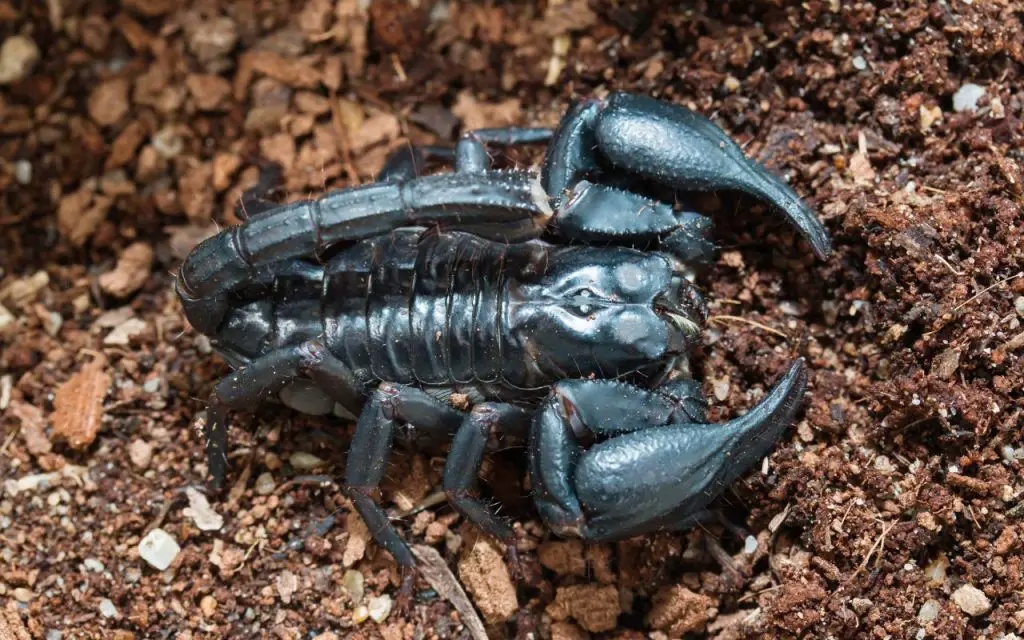Last updated on June 29th, 2023 at 11:54 am
Can Scorpions kill you? In temperater regions, scorpions tend to have mild stings, but in deserts and the tropics they can be dangerous. Let’s find out more…
A scorpion sting can be painful, but it’s not always an emergency unless you live in a region with species known to be deadly. In western Europe, for example, scorpions are not medically significant. In desert regions like the American southwest, however, their stings can be deadly if left untreated.
Can most scorpions kill you?
Although scorpions in temperate regions are not known for their deadly stings, and most scorpions can’t kill you, they do have a few characteristics to keep in mind. The venom in a scorpion can cause convulsions and shortness of breath.
It also contains neurotoxins that can affect the nervous system. These toxins can cause death in healthy adults, but they are most dangerous to infants.
The most common symptoms of scorpion stings include a burning or numbing sensation on the affected area and local pain. Some people also experience trouble focusing their eyes, drooling, a swollen tongue, and slurred speech.
While not all scorpion stings are fatal, you should visit a doctor as soon as you notice any symptoms. Children are especially susceptible to stings, and they should be watched closely by parents.
If you’ve been stung by a scorpion, the most common first step is to remove the scorpion’s habitat to try to find and identify it. Make sure to remove debris, clean up the area, and check your clothing and shoes.
If you’re unsure of where the scorpion is hiding, try using ultraviolet lighting to see if you can spot it. All scorpions, regardless of species, glow bright green under ultraviolet light.
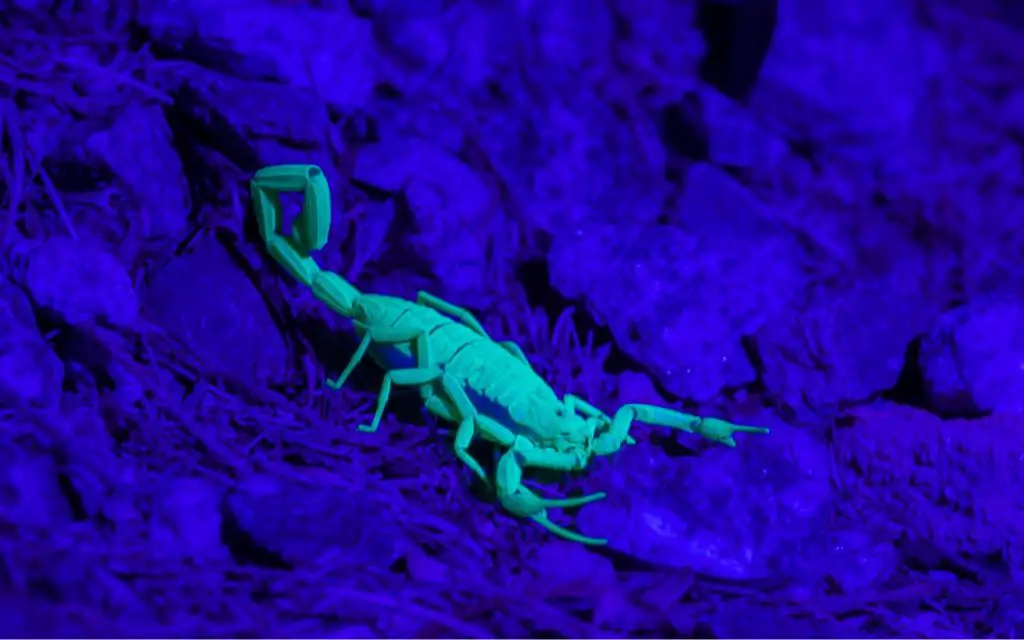
What happens if you get stung by a scorpion?
If you are stung by a scorpion, the best thing to do is seek medical treatment as soon as possible. The sting is a painful experience and should not be ignored.
In addition, if the sting is untreated, it can lead to more serious conditions such as anaphylaxis. Getting immediate medical help is vital, as it can stop the onset of an allergic reaction and provide pain relief.
Most scorpion stings cause localized pain that may last for a few minutes. In 10 percent of cases, you may feel waves of tingling that move up your arm or leg.
The sensation feels like electric shock. If the sting is mild, you may not need medical attention. In the most severe cases, you may need to visit a hospital.
There are several different types of treatment available for scorpion stings. Ice wrapped in a wet cloth can provide pain relief, as can acetaminophen or ibuprofen products.
If the sting is serious, a medical professional may prescribe an antivenom. In many cases, the sting site will disappear in 24 hours, but you may experience some numbness.
In some cases, it may take as long as three days for the numbness to go away. Most scorpions are active at night, so if you are bitten by one, be sure to keep yourself away from dark areas in the future.
If you live in one of the regions where medically significant scorpions are known to occur, don’t rely just on your own identification to know whether it’s own of the dangerous ones – just seek medical attention for a professional opinion.
The most common symptoms of a scorpion sting are:
- localised pain
- numbness that spreads
- “electric shock” sensations
- neurological issues, including faintness, dizziness, seizures, drooling and sweating
- nausea
- palpitations

How painful is a scorpion sting?
If you’ve ever experienced the sting of a scorpion, you know how uncomfortable it can be. The sting can feel like an electric shock and will cause pain, numbness, and even seizures.
If the sting is severe, you should seek medical attention immediately. Anaphylaxis, or an allergic reaction to the venom, can be life-threatening.
Fortunately, scorpion stings are usually not serious and most people recover without medical attention. Usually, an antihistamine, ibuprofen, or corticosteroid cream will help alleviate the pain.
However, if you experience difficulty breathing, extreme swelling, vomiting, or shock, you should seek medical attention. In some cases, you should use an epinephrine auto-injector. If you don’t have any other medical care nearby, call 911 or visit an emergency room.
Scorpions are usually found in moist, cool areas. They sleep during the day and are active at night. They may sting you if they feel threatened, so it’s best to avoid stepping in scorpion habitats.
If you’ve been stung by a scorpion, you’ll likely feel pain, swelling, and redness around the area. Applying an ice pack to the area will help reduce the swelling and pain.
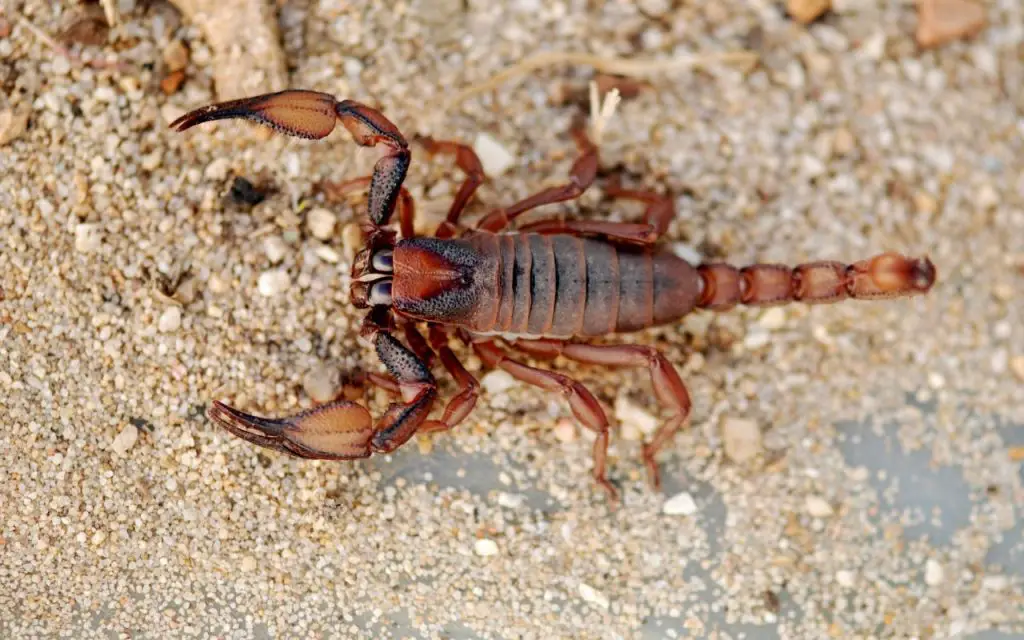
How often do scorpions kill humans?
Although Hollywood has made scorpion stings a bad rap, these arachnids aren’t nearly as dangerous as they are made out to be. The Hollywood versions of scorpions are often over-the-top and exaggerated, with the venom in most species being only enough to kill small animals and insects.
Not surprisingly, scorpions can still cause serious injuries and even death if stung by a large enough specimen, but this is true of most stinging bugs, including bees and hornets
If you are in a situation where you come into contact with a scorpion, be sure to seek medical attention immediately. In severe cases, the venom may lead to pulmonary edema, which can be fatal if the victim does not seek treatment.
However, it is possible to treat the symptoms with a prescription medicine called prazosin, which can reduce the likelihood of death to less than 4%. You should avoid scorpion stings if possible, as they are nocturnal and hide in hiding places.
The death rate from scorpion stings depends on the location and type of scorpion. In areas with the most dangerous species, the mortality rate from scorpion stings is highest.
The rate may also be influenced by the quality of medical care available in a region. A country with many scorpion species may have high scorpion sting fatality rates, while a country with high health care quality and availability of antivenom may have low scorpion sting fatality rates.
All-in-all, most dangerous scorpions live in desert regions, and some tropical regions. Most medically significant species can be found in the following regions:
- North Africa
- Southern Africa
- The Middle East (including the Arabian peninsula)
- The American southwest
- Mexico
- South Asia
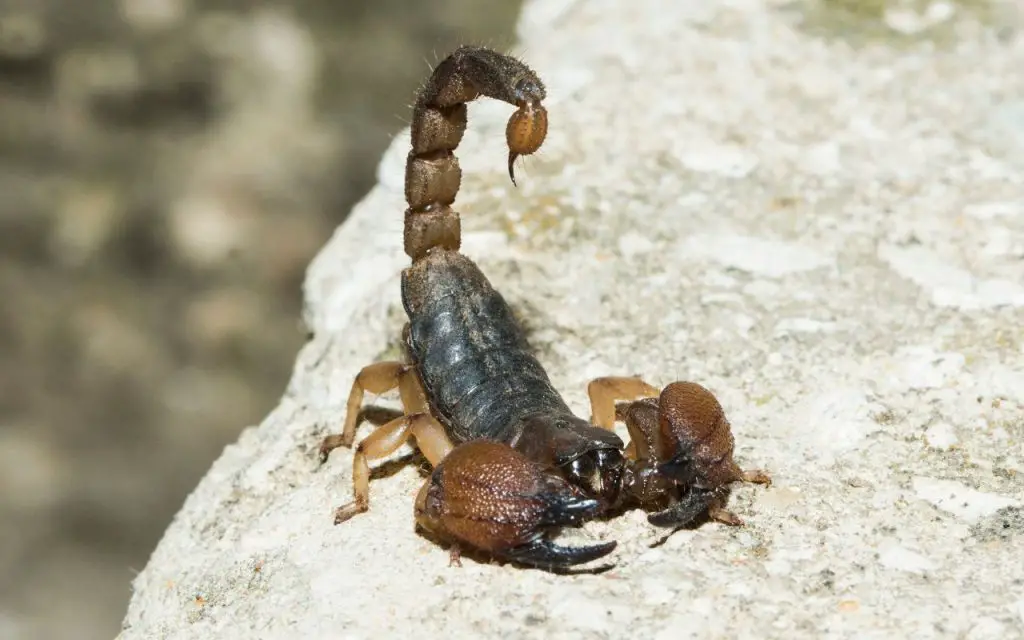
What is the deadliest scorpion on earth?
There are many scorpion species on earth, but none is more dangerous than the Deathstalker Scorpion (Leiurus quinquestriatus). Its venom contains a high concentration of neurotoxins, yet the amount required for lethality is low.
A healthy adult will be able to survive the sting of this scorpion, but young children and the elderly are at risk of life-threatening reactions to the venom. In addition to causing convulsions, the deathstalker’s sting can also cause pulmonary edema and pancreatitis. Fortunately, deaths are rare.
Another deadly scorpion is the Arabian fat-tailed scorpion. This species of scorpion lives in the deserts of the Middle East and Africa.
Its venom contains neurotoxins, cardiotoxins, and myotoxins that are extremely dangerous. Its sting can lead to respiratory failure, hypertension, and death. However, most victims can acquire antivenom doses and survive.
A tiger scorpion sting can be very painful and can cause paralysis. Its venom can travel up to three feet. It can permanently damage a human’s eye, but the tiger scorpion’s venom has only killed less than one percent of its victims. It can cause intense pain, convulsions, drooling, and heart palpitations.
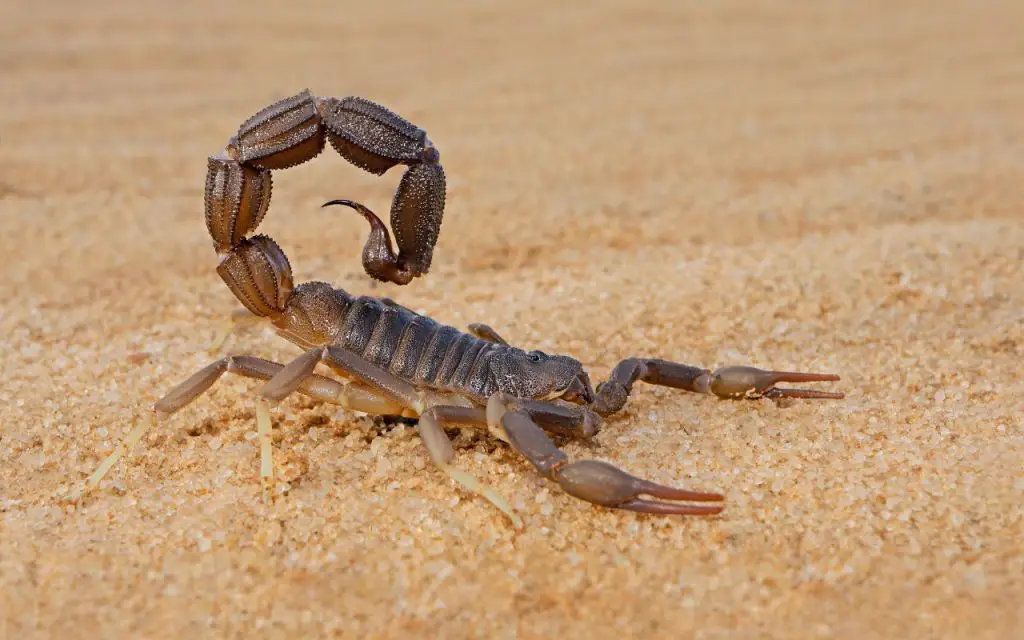
How long does a scorpion sting last?
If you are stung by a scorpion, you should seek medical attention as soon as possible. You can use a numbing agent such as ibuprofen to reduce the pain.
The pain and shock waves will fade after about 24 hours. However, you should continue to apply a cold compress to the area. You should also check for scorpions in your bedding and shoes.
The symptoms of scorpion stings usually occur then fade within 24 hours, but they may be mild for a few days or even a week. Depending on the type of scorpion that stung you, the pain will likely be the most intense for the first two hours.
In rare cases, the pain may also continue to increase over the next few days. If you continue to experience symptoms, contact a medical professional or speak to a friend who is a medical professional.
The symptoms of scorpion stings are varying and can include muscle spasms, numbness, and pain. Some people experience mild symptoms, while others experience intense pain and swelling. How humans react to venom varies enormously, and scientists are yet to fully understand why.
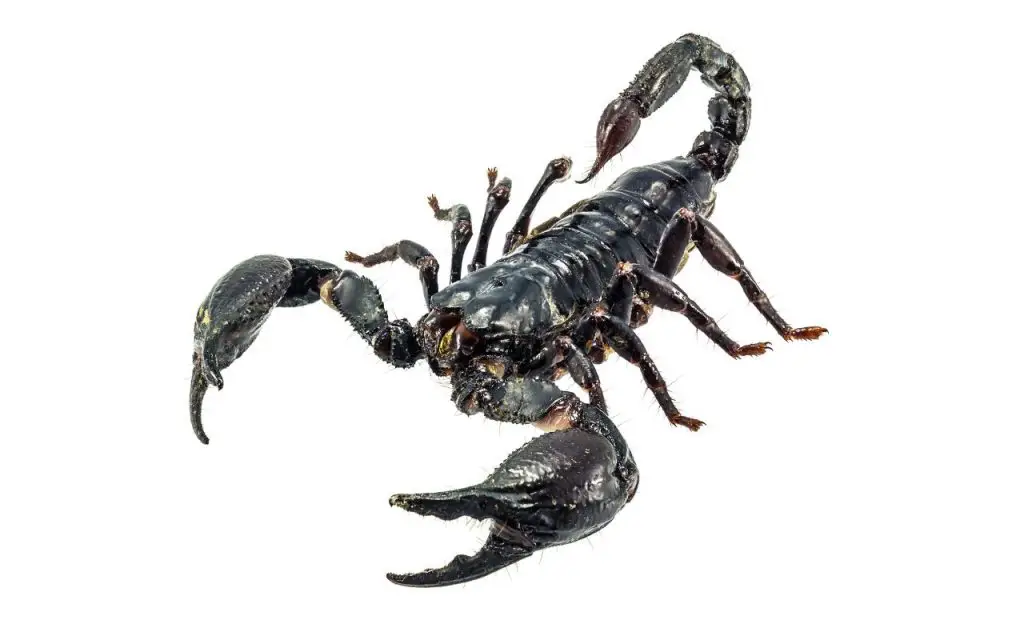
Are scorpions aggressive?
If you’ve ever wondered whether scorpions are aggressive, you’re not alone. The answer to that question depends on the type of scorpion you’re dealing with.
Female scorpions tend to be more aggressive than male scorpions, probably because they can’t run as fast as males can, but some of them are faster at stinging!
Most scorpions are not aggressive. They only sting when they feel threatened. Just like spiders and tarantulas, they are fascinating and harmless when observed or photographed from a safe distance.
While scorpions have no interest in us, they can defend themselves against humans if they feel threatened. They prefer to stay in dark places and avoid human contact.
However, if you do encounter a scorpion, don’t be alarmed. The only way to make sure you’re not harmed is to make sure you’ve kept your distance from the scorpion.
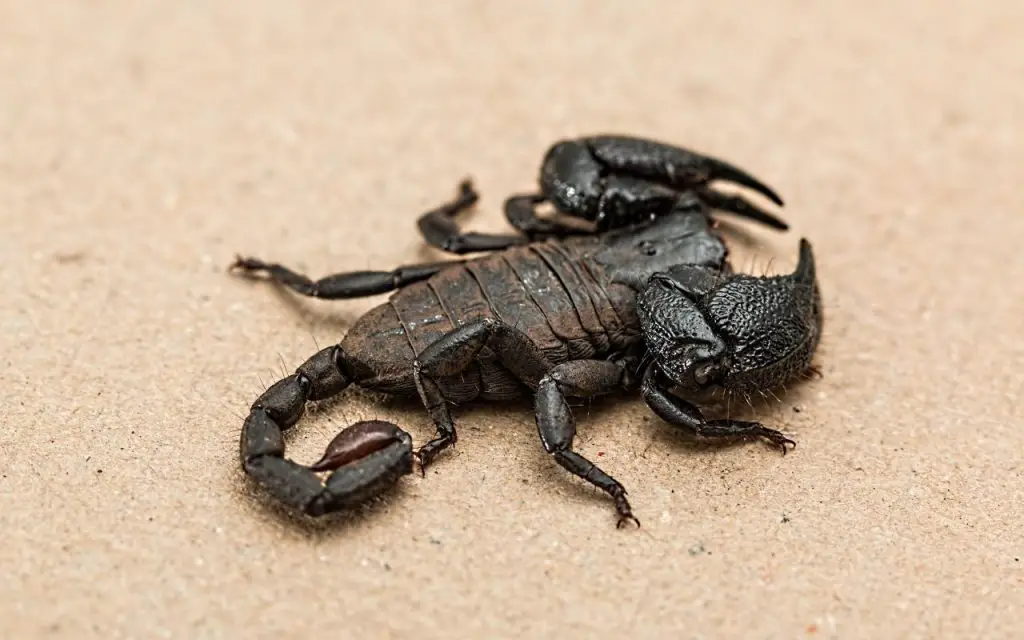
Scorpion tail thickness
In many regions around the world, tail thickness is a good predictor of how venomous a scorpion may be. It’s not a hard and fast rule, but in general more venomous scorpions have thicker tails and weaker pincers.
After all, why have big, powerful pincers if you can rely on very strong venom? Two great examples of this phenomenon are the Arabian Fat-tailed Scorpion (Androctonus crassicauda), and the Emperor Scorpion (Pandinus imperator).
The Arabian Fat-tailed Scorpion is highly venomous, and has an extraordinarily fat tail and slim pincers. It inhabits deserts where prey is scarce, and this may have influenced the evolution of such powerful toxins. Scorpions can go a long time without eating, but starvation is a real possibility in the desert.
The Emperor Scorpion, on the other hand, lives in humid forests, with abundant prey. It has very weak venom, a slim tail and huge pincers. Likewise, abundant prey may mean that it can get by with weak venom, and just grab and shred whatever small arthropods stroll by.

